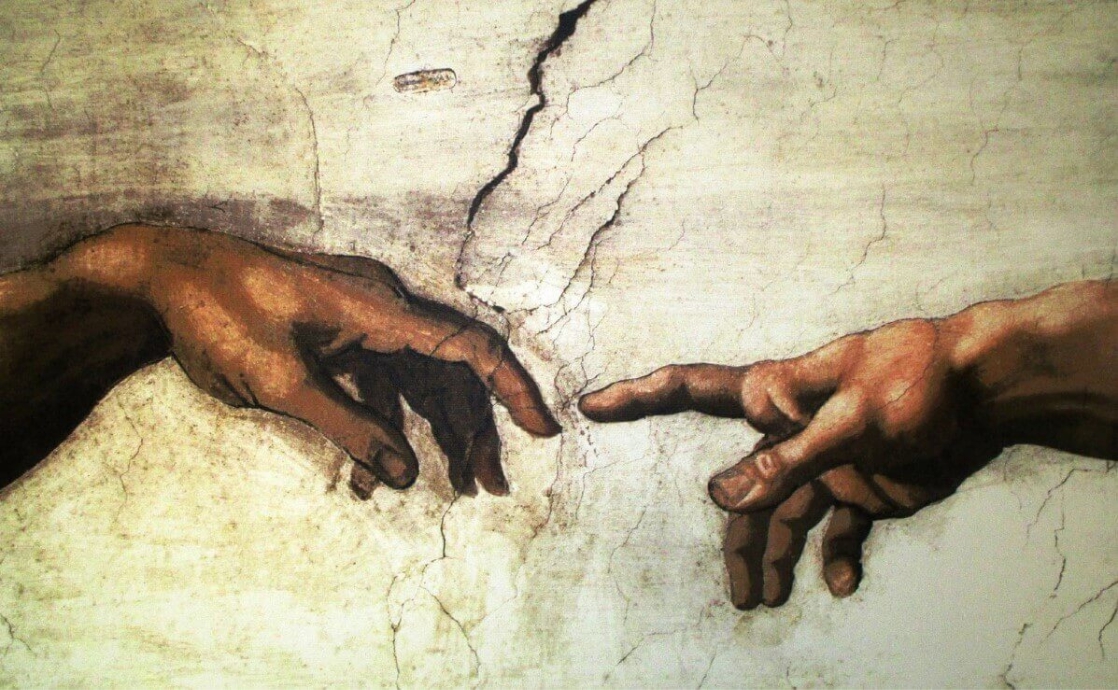The views expressed in our content reflect individual perspectives and do not represent the authoritative views of the Baha'i Faith.
In the history of ideas, most can be traced back in time to their origins – which means that an idea often has a trajectory, arcing through history like a comet.
Or, to mix metaphors, sometimes those ideas collect layers like a snowball, which gains more snow as it rolls downhill.
The same is true for the ideas in theology – hence the term “historical theology,” which tracks the course of Christian theology and its various ideas and concepts through time.
Historical theology can also help find analogues to Baha’i ideas within the history of Christian thought. Beyond identifying the obvious Islamic precursors to Baha’i ideology – considering that, historically, the Baha’i Faith emerged from an Islamic matrix in the Middle East in the 19th century, much as the Christian Faith emerged from a Jewish matrix two thousand years ago – certain Christian precursors can be found as well.
RELATED: Was Adam a Prophet?
Here’s an interesting and thought-provoking example, which is part of a lengthy debate between the figure of Peter – Christ’s foremost apostle – and Simon the Magician. The following passage, from The Clementine Homilies, explains that the pre-Abrahamic patriarch Adam did not sin:
Chapter XVII. Whether Adam Had the Spirit
“But I shall begin the statement now. God having made all things, if any one will not allow to a man, fashioned by His hands, to have possessed His great and Holy Spirit of foreknowledge, how does not he greatly err who attributes it to another born of a spurious stock! And I do not think that he will obtain pardon, though he be misled by spurious scripture to think dreadful things against the Father of all. For he who insults the image and the things belonging to the eternal King, has the sin reckoned as committed against Him in whose likeness the image was made. But then, says he, the Divine Spirit left him when he sinned. In that case the Spirit sinned along with him; and how can he escape peril who says this? But perhaps he received the Spirit after he sinned. Then it is given to the unrighteous; and where is justice? But it was afforded to the just and the unjust. This were most unrighteous of all. Thus every falsehood, though it be aided by ten thousand reasonings, must receive its refutation, though after a long time.”
Chapter XVIII. Adam Not Ignorant
“Be not deceived. Our father was ignorant of nothing; since, indeed, even the law publicly current, though charging him with the crime of ignorance for the sake of the unworthy, sends to him those desirous of knowledge, saying, ‘Ask your father, and he will tell you; your elders, and they will declare to you.’ This father, these elders ought to be inquired of.” […] – The Clementine Homilies, Homily 3, Chapters 17–18 (Hom. 3.17–18), https://www.newadvent.org/fathers/080803.htm.
This unique Christian passage, from Late Antiquity, is original in its argument and quite fascinating, if read closely and carefully.
Similarly, the Baha’i writings offer a distinctive perspective on Adam who, in the biblical tradition, is considered to be the father of humankind. This and the next essay will offer an introduction to a Baha’i outlook on Adam – and include an early Christian “precedent parallel” for your consideration. Hopefully, no matter what your religion or lack of one may be, this will prove to be an engaging intellectual and spiritual adventure!
When I grew up as a Christian – Presbyterian, then Pentecostal – I was told in Sunday school that Adam was the first “antediluvian” (which means before Noah’s Flood) patriarch in Judeo-Christian history, and that he was the father of all humankind. We were taught that Adam was also the first sinner (or perhaps the second, after Eve).
In that way, I first learned the term “Original Sin,” which technically is one of the infallibly declared dogmas of the Roman Catholic Church, according to paragraph 404 of the Catechism of the Catholic Church (CCC):
How did the sin of Adam become the sin of all his descendants? The whole human race is in Adam “as one body of one man”. By this “unity of the human race” all men are implicated in Adam’s sin, as all are implicated in Christ’s justice. Still, the transmission of original sin is a mystery that we cannot fully understand. But we do know by Revelation that Adam had received original holiness and justice not for himself alone, but for all human nature. By yielding to the tempter, Adam and Eve committed a personal sin, but this sin affected the human nature that they would then transmit in a fallen state. It is a sin which will be transmitted by propagation to all mankind, that is, by the transmission of a human nature deprived of original holiness and justice. And that is why original sin is called “sin” only in an analogical sense: it is a sin “contracted” and not “committed” — a state and not an act.
Imagine my surprise, years later at the age of 22, when I was told that Adam was the first prophet as well, according to the Baha’i teachings!
The Baha’i writings say that Adam was a “Manifestation of God” – that is, a divine messenger and prophet – and has a definite place in what Christian theologians call “salvation history,” or what Baha’i doctrine refers to as “Progressive Revelation.” In his book Some Answered Questions, Abdu’l-Baha said:
For the station of Adam, with regard to the appearance and manifestation of the divine perfections, was that of the embryo; the station of Christ was that of coming of age and maturation; and the dawning of the Most Great Luminary [Baha’u’llah] was the station of the perfection of the essence and the attributes.
According to this unique Baha’i understanding, the prophet Adam represented and guided humanity at its embryonic stage of spiritual development, while Christ enlightened the world during its “coming of age and maturation” stage of spiritual evolution, while Baha’u’llah brought this process to its full-blown “perfection.”
RELATED: Rethinking Adam and Eve
Interesting, some of you may say, but what about Adam’s sin — that is, eating of the forbidden fruit of the Tree of the Knowledge of God and Evil? Wasn’t that a spiritual step backward, not forward? In Some Answered Questions, Abdu’l-Baha was asked “What is the truth of the story of Adam and His eating from the tree?” He answered:
It is recorded in the Torah that God placed Adam in the Garden of Eden to work and tend it, and said to Him: “Eat freely of every tree of the garden, save for the tree of good and evil, for if thou wert to eat thereof thou wouldst surely die.” (Cf. Gen. 2:16–17.) Then it is said that God caused Adam to sleep, took a bone from His ribs, and created a woman to be His companion. Further on it is said that the serpent tempted the woman to eat of the tree, saying: “God has forbidden you to eat from the tree, that your eyes may not be opened and that you may not discern good from evil.” (Cf. Gen. 3:5.) Then Eve ate from the tree and gave unto Adam, who also ate. Whereupon their eyes were opened, they found themselves naked, and they covered their nakedness with leaves. God then reproached them, saying to Adam: “Hast Thou eaten of the forbidden tree?” Adam answered: “Eve tempted Me.” God then reproved Eve, who said: “The serpent tempted me.” For this the serpent was cursed, and enmity was established between the serpent and Eve and between their descendants. And God said: “The man is become like unto Us, knowing good and evil. Perhaps He will eat of the tree of life and live forever.” So God guarded the tree of life. (Cf. Gen. 3:11–15, 22.)
As I understand it, Abdu’l-Baha says that God’s “rebuke” was “outwardly addressed” to the prophet Adam. But then Abdu’l-Baha goes on to say that God’s stern words to the prophet Adam were really “inwardly intended for the followers and not for the Messenger.” On this issue, Abdu’l-Baha gave the following answer:
Every divine utterance that takes the form of a rebuke, though it be outwardly addressed to the Prophets of God, is in reality directed to Their followers. The wisdom of this is naught but unalloyed mercy, that the people might not be dismayed, disheartened, or burdened by such reproaches and rebukes. These words are therefore outwardly addressed to the Prophets, but, even so, they are inwardly intended for the followers and not for the Messenger.
As Abdu’l-Baha explained in Some Answered Questions, God’s reproach to Adam and Eve was to one and the same person:
These verses of the Torah have therefore numerous meanings. We will explain one of them and will say that by “Adam” is meant the spirit of Adam and by “Eve” is meant His self. For in certain passages of the Sacred Scriptures where women are mentioned, the intended meaning is the human self. By “the tree of good and evil” is meant the material world, for the heavenly realm of the spirit is pure goodness and absolute radiance, but in the material world light and darkness, good and evil, and all manner of opposing realities are to be found.
Remember the Bible recounts that Jesus was “tempted” by His “Eve,” or his lower self, as well – see Jesus’ “Temptation in the Wilderness” in Luke 4:1–15, Matthew 4:1–11, and Mark 1:12–13. But then Abdu’l-Baha goes on to explain:
This sin in Adam, moreover, is relative to His station: Although this worldly attachment produced substantial results, yet in relation to attachment to the spiritual realm it is nonetheless regarded as a sin, and the truth of the saying, “The good deeds of the righteous are the sins of the near ones” is established.
So, as I understand it, the Prophet Adam’s outward “sin,” relatively speaking, was a “good deed” that “produced substantial results.” Under this analysis, this sin was really that of humanity, not the prophet Adam himself. The “substantial results” represent the general awakening of humankind to the knowledge of “good and evil” which is “like unto Us,” As Abdu’l-Baha explained: “And God said: ‘The man is become like unto Us, knowing good and evil. Perhaps He will eat of the tree of life and live forever.’”
This represents the birth of human moral and ethical consciousness – and that makes perfect sense, with the prophet Adam being the first “Manifestation of God” in the Prophetic Cycle, in which “the station of Adam … was that of the embryo.”
















Comments
Sign in or create an account
Continue with Googleor